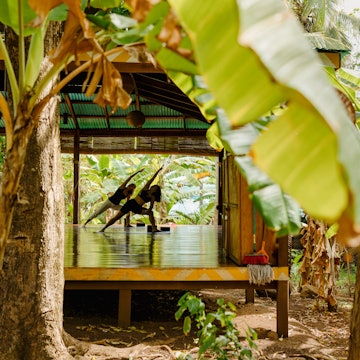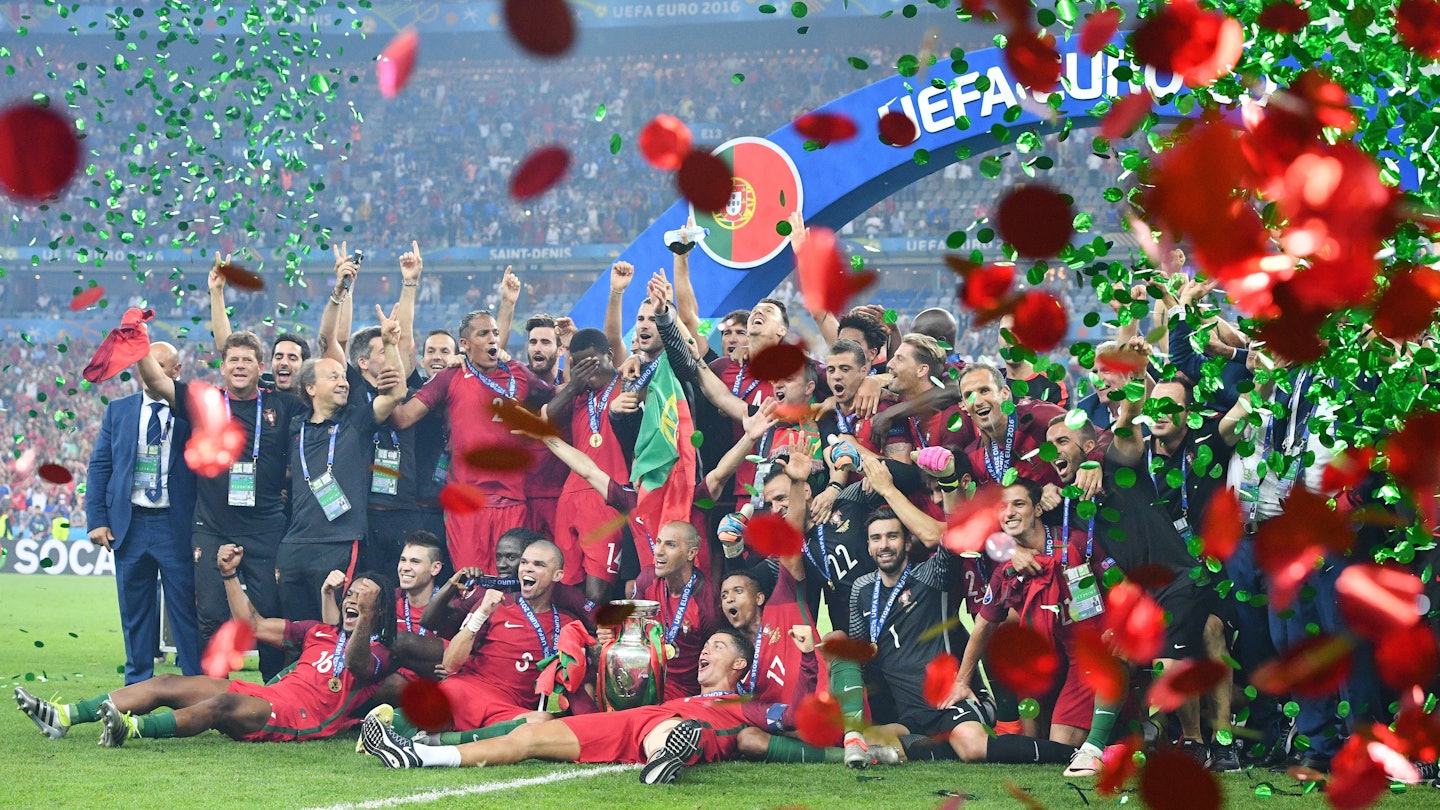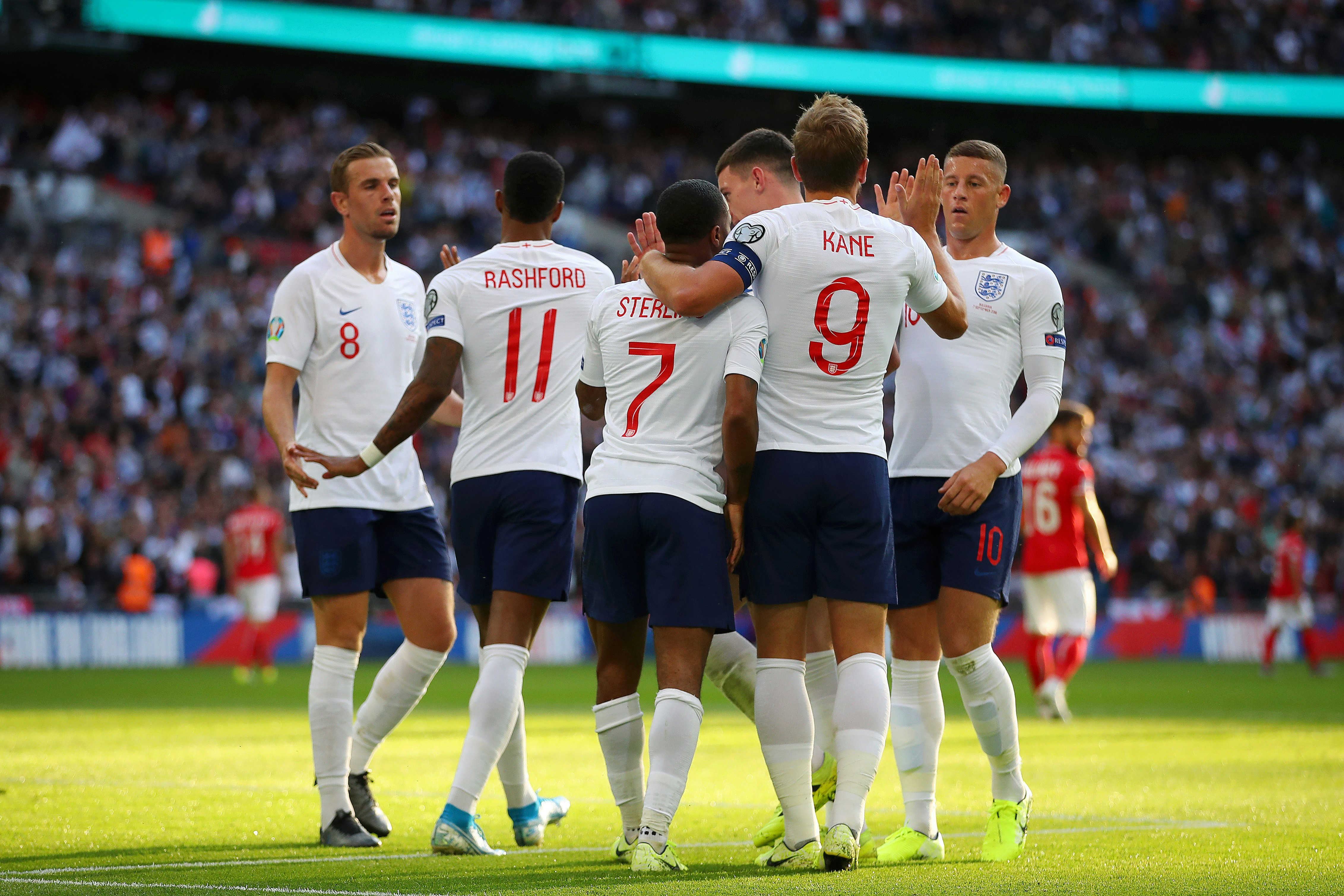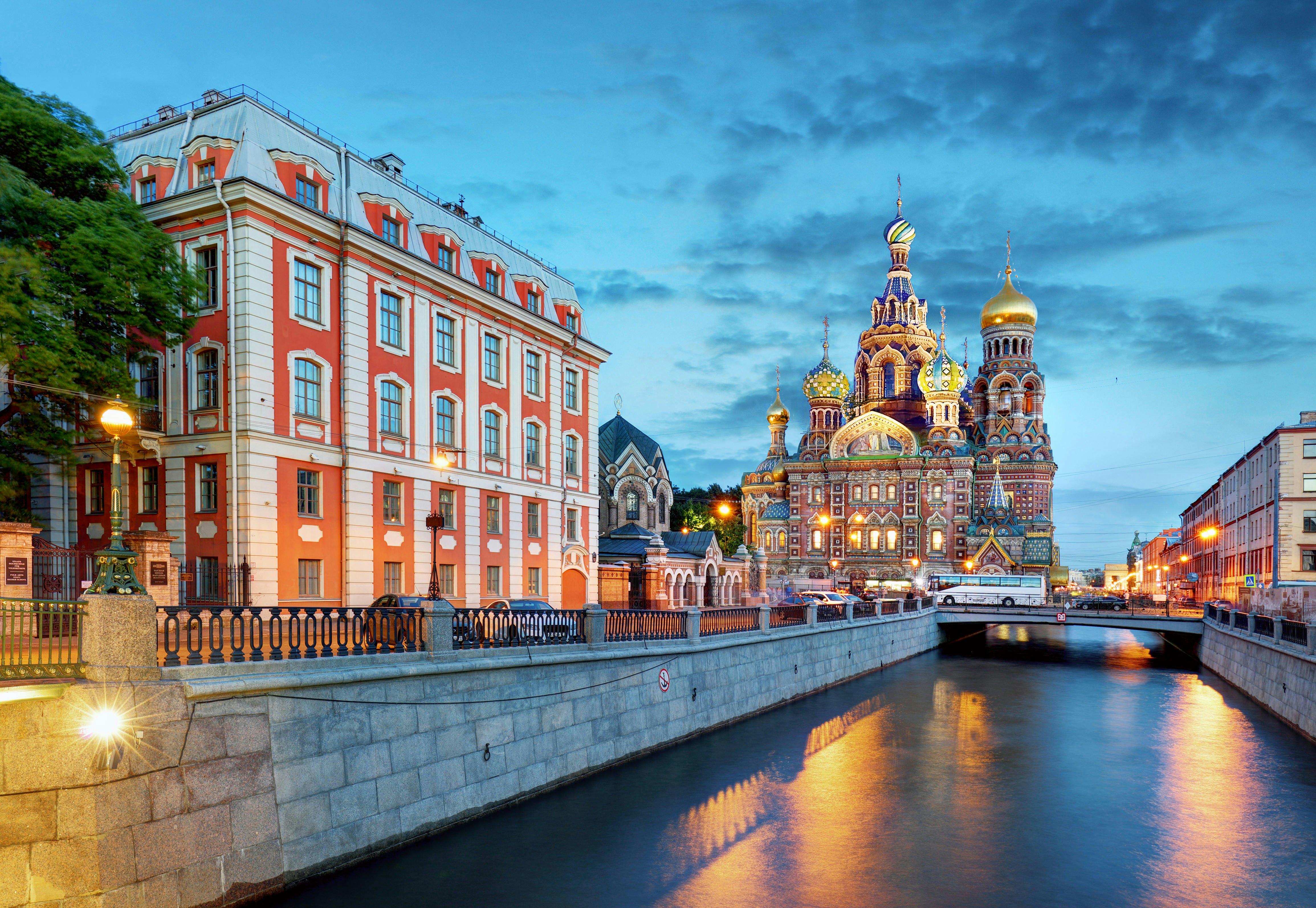
Euro 2020: everything you need to know about travelling to the championships

Jan 6, 2020 • 11 min read

Not sure if you can make it to Euro 2020? Well it’s possible the tournament may be coming to you. To celebrate the 60th anniversary of the event, the European football championships are being staged in multiple countries for the first time, with venues in 12 cities in 12 different countries spread across Europe, from Bilbao to Baku.

UEFA’s ambitious plan is to stage a one-off "party all over Europe", but how can you bag an invite to the festivities that start in Rome on 6 June and conclude with the final at London’s Wembley Stadium on 12 July? Here’s our guide to Euro 2020, with info on everything potential attendees need to know, from how to get tickets to the best places to eat and drink in host cities.

Who’s playing?
So far: Austria, Belgium, Croatia, Czech Republic, Denmark, England, Finland, France, Germany, Italy, Netherlands, Poland, Portugal, Russia, Spain, Sweden, Switzerland, Turkey, Ukraine and Wales have qualified for next summer’s 24-team tournament. The other four qualifiers will come out of a convoluted playoff system that will be concluded in March 2020.
In this edition of the tournament, host countries don’t automatically qualify, so it’s possible that some hosting nations won’t be playing – despite UEFA’s best efforts to make the qualification door as wide as possible.

Which cities are hosting?
The host cities for the tournament are: Amsterdam, Baku, Bilbao, Bucharest, Budapest, Copenhagen, Dublin, Glasgow, London, Munich, Rome and St Petersburg. London’s Wembley Stadium is the largest venue, with a capacity of 90,000, while Copenhagen’s Parken Stadium is the smallest, with capacity for 38,065.
How can I get tickets to Euro 2020?
The first round of ticket applications has been and gone, an open lottery that saw 19.3 million requests for tickets in three price tiers. But fear not, another round will open between 4–18 December 2019. This second round is designed to target fans of qualified nations. Apply for tickets on the official Euro website.
It’s worth noting that demand for most games will outweigh supply. If you’re a member of your national team’s official fan loyalty programme, you’ll stand a much better chance of being successful.
Your chances of scoring tickets will also improve if you’re looking in the more expensive price bracket (more on this below) or if you’re looking to attend matches in venues where demand for tickets won’t be as high – this might be the perfect opportunity to explore the charms of Baku, for instance, as Azerbaijan has failed to qualify for the tournament despite serving as a host nation.

How much are Euro 2020 tickets?
Tickets are available in three price categories – Category 1 (centrally placed), Category 2 (in the corners) and Category 3 (behind the goals). Prices also vary depending on the venue, so tickets for Category 1, 2 and 3 in ‘Cluster A’ cities – Amsterdam, Bilbao, Copenhagen, Dublin, Glasgow, London, Munich, Rome and St Petersburg – will cost €185, €125 and €50, respectively. Tickets for ‘Cluster B’ cities – Baku, Bucharest and Budapest – will cost €125, €75 and €30.
Cluster A tickets for the latter stages are more expensive, rising from €75 for a Category 3 ticket for a quarter-final to €945 for a Category 1 ticket for the final.
Will I need a visa to visit host cities?
EU citizens can travel freely in and out of member states; non-EU citizens travelling in the EU and EU citizens travelling to Azerbaijan will be allowed to enter and exit host countries so long as they have a valid passport and a relevant match ticket. Russia is operating a visa-free entry system for all fans travelling to St Petersburg, but they must have a valid passport and a FAN ID – a mandatory document for all the spectators of matches in St Petersburg, which can be obtained on the official website.

Best places to stay, eat and drink in host cities
The tournament’s 12 host cities are divided into pairs, and each pair is assigned to a qualification group; for example, England are in Group D, along with Croatia, the Czech Republic and one team yet to qualify, and matches between these teams will be played in London and Glasgow. Presuming their national team has qualified, each of the 12 host nations will play at least two group matches at home.
Rome, Italy (Group A)
Stay: For budget accommodation, RomeHello is the city’s best hostel (and most of the profit goes to worthy social causes); for something a little more upmarket, Relais La Clarisse is a gorgeous boutique hotel in the perennially popular Trastevere neighbourhood.
Eat: Da Teo is a classic Roman trattoria with a superb pasta cacio e pepe (cheese and black pepper pasta), while La Buca di Ripetta is a good modern restaurant near the Spanish Steps.
Drink: For quality craft beers, football-mad Hopside is the place to watch matches on the large screens.
Baku, Azerbaijan (Group A)
Stay: The nine-room Buta Hotel, located in the heart of Baku’s Old City, is ideal for budget travellers, while the five-star Landmark Hotel is a luxurious business hotel with terrific views over the city’s skyline.
Eat: The appropriately named Paris Bistro looks and tastes like it belongs on the Champs-Élysées; for more local fare, try Şirvanşah Muzey-Restoran, once a 19th-century bathhouse.
Drink: The lively William Shakespeare is a popular watering hole for working expats that’ll have the footie on around the clock.

Copenhagen, Denmark (Group B)
Stay: Not just a place to stay, the clean and sociable Copenhagen Downtown Hostel also hosts gigs and free city walks. For something more quirky, stay on a converted freight boat in the middle of the harbour at CPH Living – this is Copenhagen after all.
Eat: You can’t leave Copenhagen without indulging in smørrebrød (open sandwiches), and you’ll find a great one at Schønnemann. For a more varied palette, Høst places an emphasis on fresh, seasonal veg, and its decor that has won numerous design awards.
Drink: Brus, a microbrewery in an old locomotive factory, is one of the coolest pubs in Copenhagen but, for match days, seek out the big screens at the simply-named Pub & Sport.
St Petersburg, Russia (Group B)
Stay: Fun and friendly, 60s-style Baby Lemonade Hostel has dorms and private rooms. The Hotel Indigo, in a pre-revolutionary, neo-classical building, is perhaps the best midrange hotel in St Petersburg, and boasts a lovely rooftop terrace.
Eat: Waiters will lapse into song while bringing out time-honoured Russian favourites at Sadko. For more conventional service, and a few surprising – though delicious – dishes, try vegetarian Botanika.
Drink: You’ll need a reservation for Kabinet, a speakeasy-style ‘secret’ bar beneath a burger joint. For something less exclusive, Mollie’s Pub is always rammed, offers well-priced drinks and shows the football.

Amsterdam, Netherlands (Group C)
Stay: Cocomama is a boutique hostel in what was once a high-end brothel. Hotel De Hallen, meanwhile, was a large tram depot in a former life, and now houses 47 very trendy rooms with modern art and house plants aplenty.
Eat: For a bit of old Amsterdam, D'Vijff Vlieghen (the five houses) is a museum-cum-restaurant with beautiful interiors and a focus on seasonal Dutch ingredients. Equally atmospheric, Buffet van Odette is a canal-side spot that does sandwiches and hot dishes.
Drink: If you can’t get to the game, the huge Satellite Sports Café has big screens and a great atmosphere. Alternatively, there are loads of sports bars in the centre of town – just follow the chanting.
Bucharest, Romania (Group C)
Sleep: The Little Bucharest Old Town Hostel is the city’s most central hostel and is surrounded by bars, restaurants and cultural attractions. For something a little more swish, the Hotel Casa Capsa hides lovely high-ceilinged rooms behind its charming 19th-century facade.
Eat: For international dishes, the Shift Pub is a good choice, with a wide array of options from shnitzel to spaghetti bolognese. For local fare, you won’t find better in Bucharest than the menu at Lacrimi și Sfinți, which specialises in farm-to-fork freshness.
Drink: Kick back and enjoy a beer at Grădina Eden, in a garden behind a derelict palace. For atmosphere, the Halftime Pub attracts legions of football fans on match days.

Glasgow, Scotland (Group D)
Sleep: The cosy Heritage Hotel is a good value option, set within two Victorian terrace townhouses in the Glasgow's West End. Dakota Deluxe is at the other end of the scale, a shimmering, swanky designer hotel, with cocktail bars, standalone bath tubs and mod cons galore.
Eat: Ubiquitous Chip is the prototypical champion of the best of local Scottish produce, and known for its exceptional service staff. For tasty tapas, try Ox & Finch, which draws on French and Mediterrean influences but with a Scottish twist.
Drink: Pot Still is an old-school boozer with a fine selection of whiskies. Three-floored Waxy O’Connors will have space for football fans even if Scotland make the final… though don’t hold us to that.
London, England (Group D)
Sleep: Hopefully as close to a prison as you’ll ever find yourself, Clink78 is a huge hostel that used to rehabilitate criminals. Elsewhere, citizenM Tower of London is a beautiful boutique hotel within striking distance of Tower Bridge – it also has outfits in Shoreditch and Bankside.
Eat: Cheap, super tasty ramen is on offer at Koi Ramen Bar in Pop Brixton (a consortium of street food stalls, independent retailers and social enterprises in Brixton). From humble origins as a supper club in a small London flat, Clove Club in Hackney offers British cuisine with unusual ingredients and has a Michelin star.
Drink: In the West End, the Lamb & Flag is just one of many great boozers that’s always heaving – and for good reason. For the best of the best, head to the Famous Three Kings in West Kensington, an award-winning sports bar with screens aplenty.

Bilbao, Spain (Group E)
Stay: Cute and cosy Begoña is a beautifully decorated guesthouse, and great spot to meet fellow travellers. Though less charming, the Hotel Ilunion is a good choice, slap bang in the centre of Bilbao with all the mod cons a football fan could need, as well as on-site gym and buffet breakfast.
Eat: Though a tough category to top, some of the best pinxtos (tiny plates) in town can be found in Ledesma No 5, best enjoyed stood at the bar with a bottle of San Miguel in hand. For heartier meals, Coppola is a fab Italian joint.
Drink: The best football atmosphere is to be found in bars closely associated with local team Athletic Bilbao, like La Peña Athletic, right in the heart of the Old Town.
Dublin, Ireland (Group E)
Stay: One of the best hostels in town is Generator, part of the popular European chain; for bird's-eye views of the city, check in at Aloft Dublin City, offering comfortable modern rooms that are easy on the eye.
Eat: Housed in a beautiful Georgian townhouse, Mr Fox rustles up top-quality dishes using local, seasonal ingredients, and offers a dedicated vegetarian menu. Though a bit of a journey from the city centre, Michael's dishes up some of the best seafood in Dublin.
Drink: In a city that takes great pride in its classic pubs, there’s none better than John Mulligan’s. For a dedicated sports bar, try The Living Room, which also has a beer garden.

Munich, Germany (Group F)
Sleep: The cheapest beds in Munich are in non-profit, hippy-esque The Tent – the very cheapest bunks here are simply foam mattresses on the floor. For a little more luxury, the Louis Hotel is an elegant spot near the Viktualienmarkt.
Eat: Sample traditional German dumplings at Bavarian tavern Wirtshaus in der Au, which also has a beer garden that opens in summer. For something more refined, explore the Bavarian region on a fork at Fraunhofer, with a seasonally adapted menu of southern German favourites, as well as a smattering of top-notch veggie dishes.
Drink: The Hofbräuhaus is the city’s most famous beer hall and a tourist attraction in its own right, with steins of beers being smashed together over wooden tables. Elsewhere, Munich has myriad dedicated sports bars dotted around the city centre, including Treffpunkt Sportsbar.
Budapest, Hungary (Group F)
Sleep: Something between an art gallery and intimate hotel, Brody House offers 10 rooms in a building that once served as the prime minister's residence. For sweeping Danube views, long-standing Pest-Buda Bistro & Hotel on Castle Hill bags the best vantage point, its cultured boutique abodes are a mere bonus.
Eat: Sample Hungarian specialities like stuffed csülök (pig's trotter) and savanyúság (pickled vegetables) and enjoy a warm welcome at Kispiac. For Israeli dishes – and excellent cocktails – in a charming, quiet courtyard, head to Mazel Tov.
Drink: Like it or loathe it, Szimpla Kert, the original ‘ruin bar’ is a must-visit drinking den in Budapest. For dedicated sport-watching, head to Champs Sport Pub, with big screens and pub grub.
You might also like:
Tokyo 2020: a guide to travelling to the Summer Olympic Games
Pack your gym shorts: 9 unique sports to try on your travels in 2020
Working 9-5 but want to travel more? Here's how you can do it






















